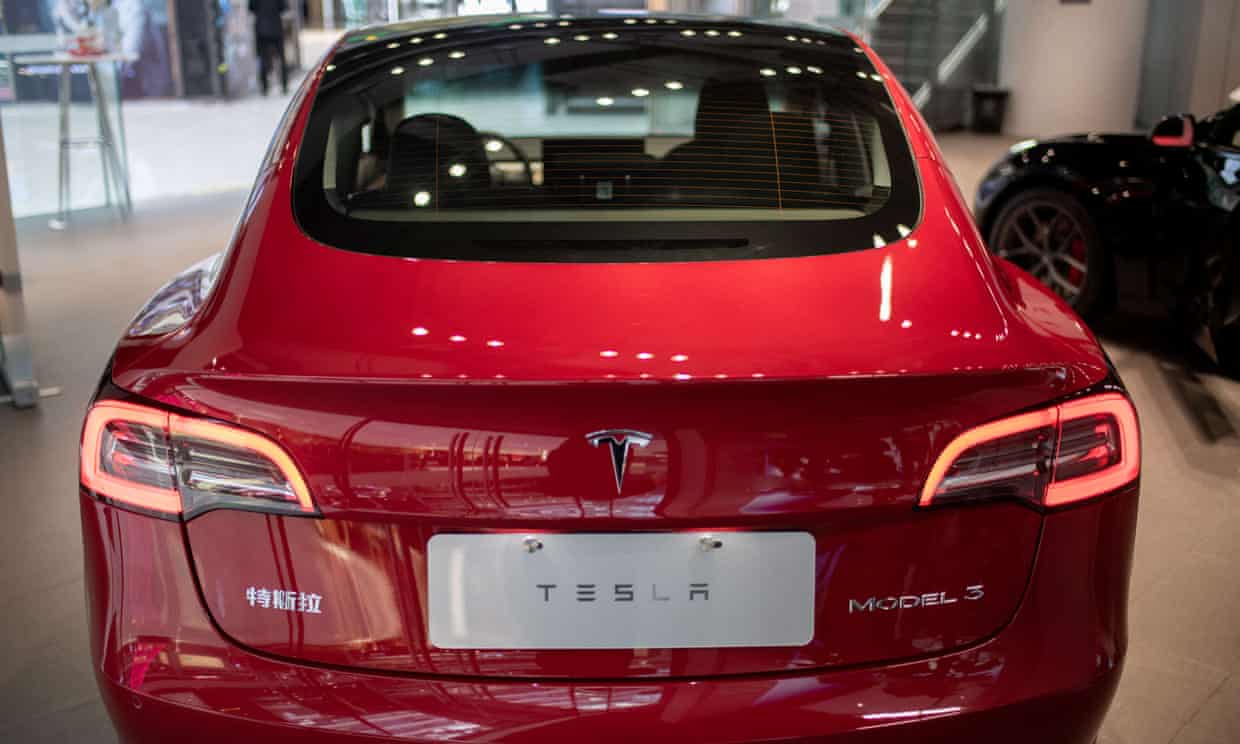 Sales well below pre-pandemic levels but popularity of electric vehicles provides bright spot
Sales well below pre-pandemic levels but popularity of electric vehicles provides bright spot
Tesla Model 3
The Tesla Model 3 outsold every other model – electric, hybrid or combustion – on the market during June. Photograph: Nicolas Asfouri/AFP/Getty Images
Source: Jasper Jolly/The Guardian
The UK car industry continued its weak recovery from the pandemic in June with sales well below pre-Covid-19 levels, as the continuing popularity of electric vehicles provided a rare bright spot. Sales of battery-powered electric cars more than doubled year-on-year to 19,800 for June, accounting for 10.7% of sales.
Tesla’s battery electric Model 3, already the most popular battery car on British roads, outsold every other model – electric, hybrid or combustion – on the market during June amid an import push by the US electric car manufacturer.
People in the UK bought 186,000 new cars in June up 28% on the same month last year, according to the Society of Motor Manufacturers and Traders (SMMT), a lobby group. However, sales were still down 16% compared with the average for the 10 years before the pandemic.Sales of 909,000 cars for the first half of the year fell just short of previous industry forecasts, with the SMMT pointing to continued difficulties caused by supply chain shortages. In particular, carmakers have found themselves at the back of the queue when it comes to securing computer chips that are vital to controlling modern vehicles.
Overall sales are still dominated by cars with internal combustion engines, including models using petrol, diesel, or hybrids which also have a battery. However, sales are shifting rapidly towards battery models after the UK government said it will ban all combustion engine sales by 2035.
There were 74,000 pure battery car sales in the first half of the year – 8% of all car sales. That compared with 156,000 sales of diesels or mild-hybrids, which contain only a small battery.
The industry is hoping that consumer confidence will increase as England and the other UK nations remove the last pandemic restrictions.
Mike Hawes, the SMMT chief executive, said: “With the final phases of the UK’s vaccine rollout well under way and confidence increasing, the automotive sector is now battling against a ‘long Covid’ of vehicle supply challenges.
“The semiconductor shortages arising from Covid-constrained output globally are affecting vehicle production, disrupting supply on certain models and restricting the automotive recovery.”






